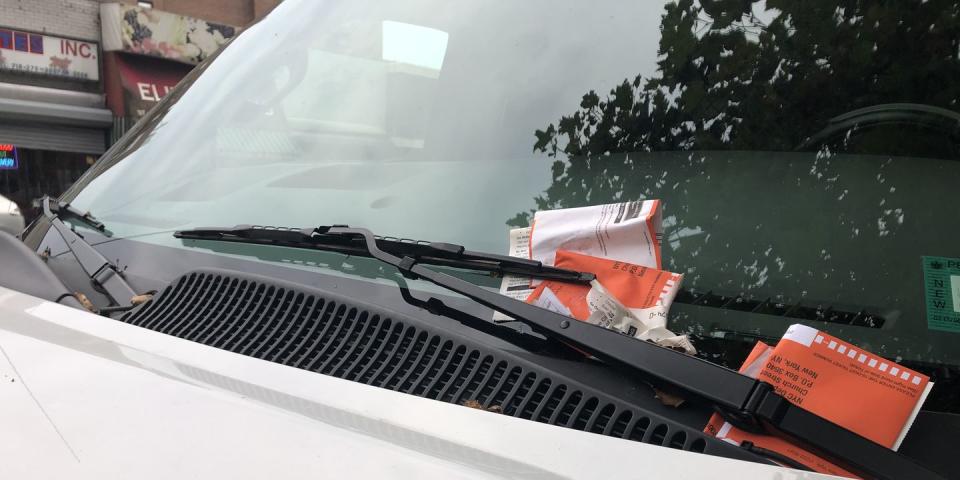For Drivers, Ticket Amnesty Programs Can Ease Financial Burden

"[I] can't get a job because of these tickets. I have to pay my bills or I'd be out on the street, so I take paying my bills over tickets.” For Angela Dabney, a 40-year-old single mother of three who lives in Alabama, it started with one traffic ticket she couldn't afford to pay. Now she has a suspended driver's license, which in turn, she says, has made it difficult to get a job.
Jahmani Kinch, a 28-year-old college student from Long Island, says he was ticketed more than 10 years ago while driving a relative's car, pulled over for not stopping at a stop sign, having a taillight out, and not having insurance. Unable to pay the original fine when he was 17, he says his license was suspended, which led to more tickets. He suspects he owes $3000 in fines and fees.
And the Washington Post reported about a 68-year-old Washington, DC, resident, Garry Scott, who says one ticket for not having a residential parking permit led to six tickets and added fees. A decade later, he says he owes the District $5000.
"There are many individuals who simply cannot afford to pay their outstanding debts," Lucinda M. Babers, Washington, DC's deputy mayor for operations and infrastructure, told the Washington Post earlier this summer, when the District announced an amnesty program that allows those with motor-vehicle tickets—from speeding to parking—to pay the original ticket fine without added late fees. In DC, unpaid tickets double after 30 days of nonpayment.
The DC mayor's office earlier this week announced an extension of the amnesty program that began in June. The program, which was set to end on September 30, has been extended to December 31. For those who don't make a payment before December 31, late penalties will return.

Since the onset of the pandemic, many cities have initiated similar programs that allow a driver to pay only the initial fine for an infraction and not the added late fees. The National League of Cities' Institute for Youth, Education, and Families says cities both large and small have sought ways to ease the burden on taxpayers, especially during the pandemic, while still bringing in needed revenue. Boston ran a yearlong ticket amnesty program for health-care workers who were ticketed while working during the height of the pandemic. That program ended in April. Wilmington, Delaware, held a one-month-long amnesty program for tickets issued between 2017 and 2019 that allowed drivers to pay only the original ticket fine. Buffalo, New York, initiated an amnesty program that ended on December 31, 2020, and waived late fees for parking tickets that were more than a year old, as well as providing amnesty for low-income residents with minor moving violations. In San Jose, California, where the San Jose Spotlight reported that residents owed a collective $25 million in parking fees, the city granted amnesty for delinquent fees for parking tickets that ended on December 31, 2020. And the Poughkeepsie Journal reported that the city ran a 90-day amnesty program that ended last month for drivers with unpaid parking tickets; the program waived all added late fees.

 Yahoo Autos
Yahoo Autos 